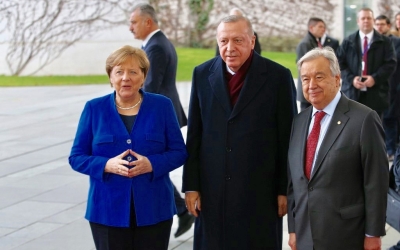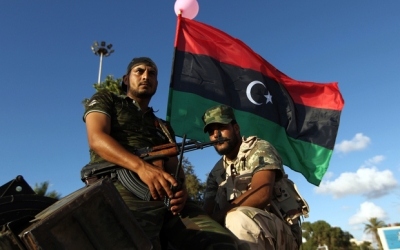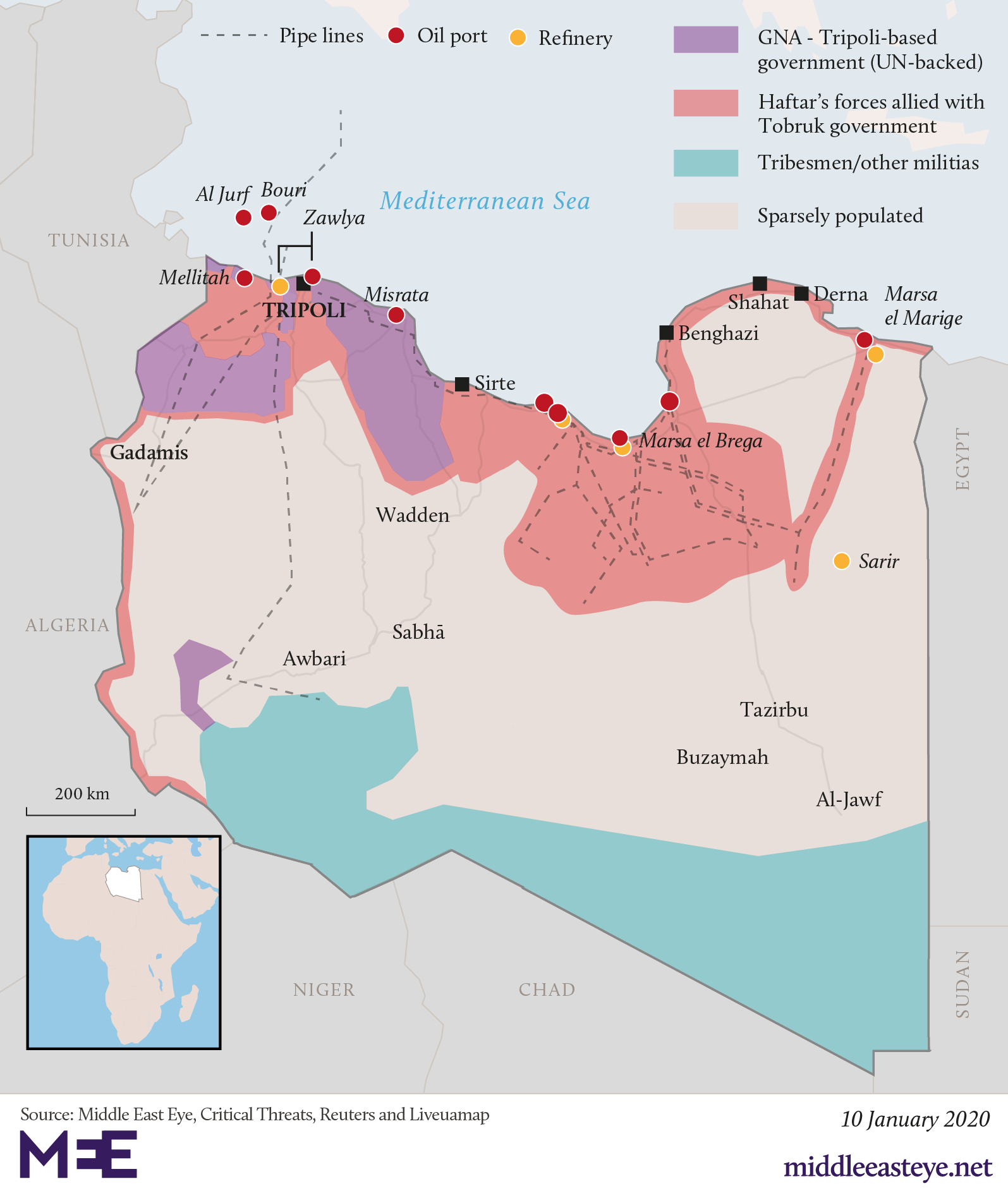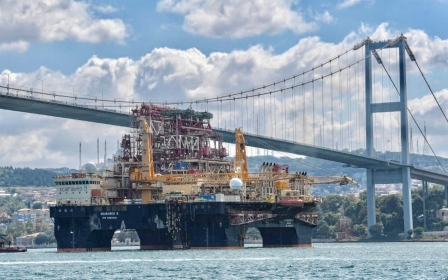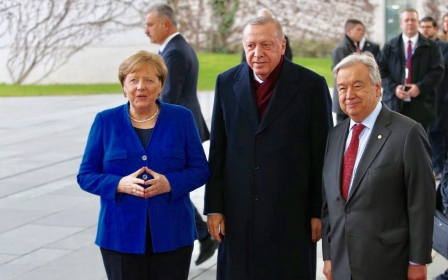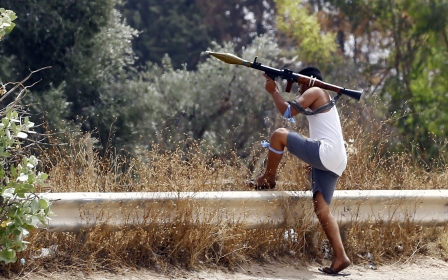Libyan PM questions UAE role in conflict, vows to never sit with Haftar again
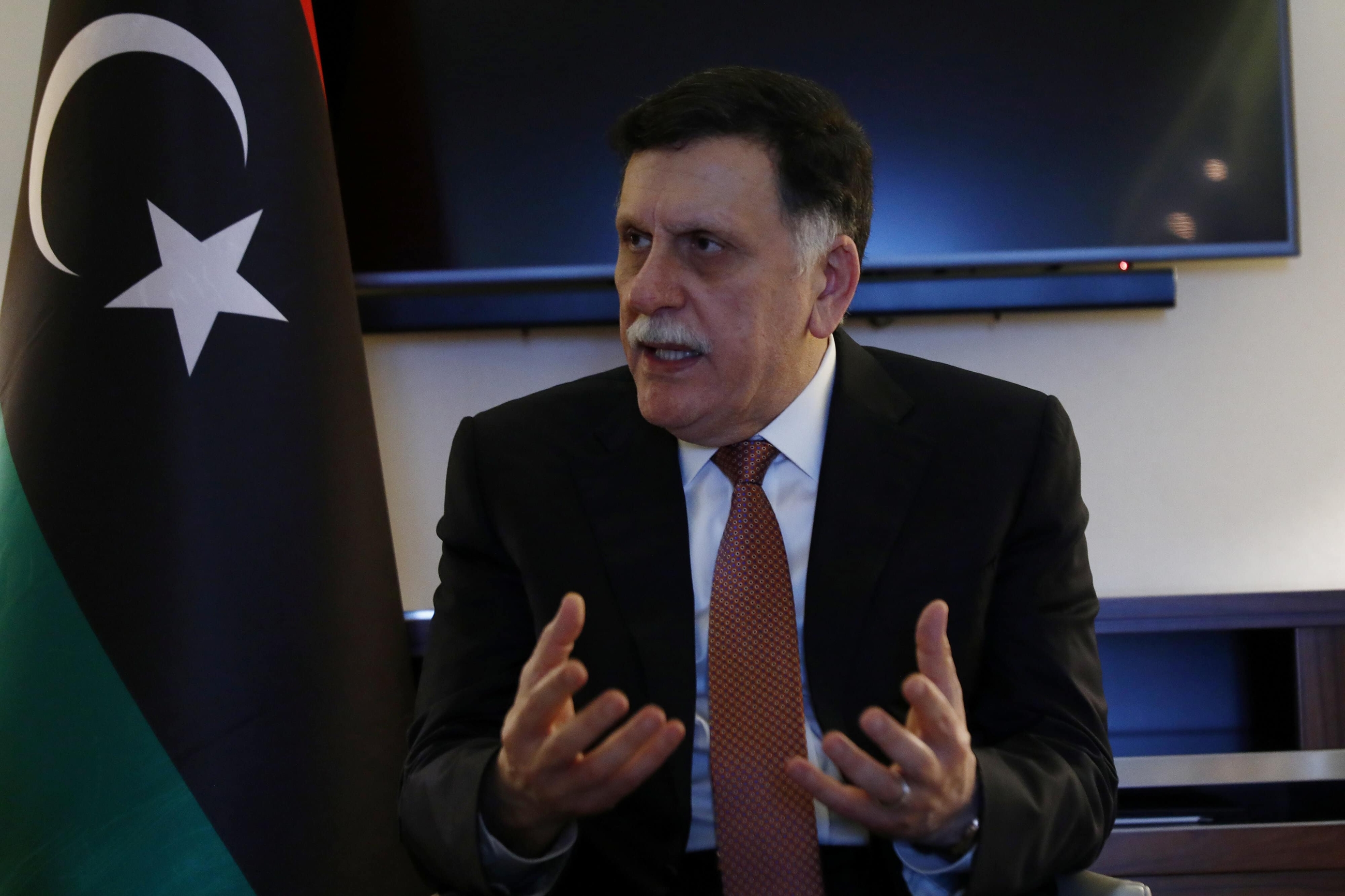
Fayez al-Sarraj, the head of Libya's internationally recognised government in Tripoli, has slammed the United Arab Emirates (UAE) over its interference in the war in his country, and vowed to never sit with Eastern commander Khalifa Haftar again.
In an interview with Al Jazeera Arabic on Tuesday, Sarraj suggested that Abu Dhabi was seeking to cement its foothold in North Africa by establishing a military base in the country's east.
"Libya does not have any common borders with the UAE," Sarraj said, adding that this "raises a question about its goals of interfering" in the country.
Since 2016, there has been a gradual build-up of Emirati infrastructure and aircraft, including drones, at Libya's al-Khadim air base, which is about 105km east of Benghazi.
Despite a UN arms embargo against Libya, the UAE has been accused of transferring arms to Haftar's forces, which experts say has escalated the conflict.
Earlier this month, the Tripoli-based Government of National Accord (GNA) said an attack on a military school, which caused the deaths of 30 students, was carried out by a Chinese-made Wing Loong II drone belonging to the UAE.
Libya, a large oil producer, has been plagued by crisis since a NATO-backed uprising toppled longtime leader Muammar Gaddafi in 2011.
The country is currently split between two rival administrations: the GNA, led by Sarraj, and the House of Representatives based in the eastern city of Tobruk, which is linked to Haftar.
The GNA has been fending off a months-long offensive by Haftar's forces, which are backed by the UAE and Egypt, and are also supported by fighters and mercenaries from Sudan and Russia.
The GNA recently requested military assistance from the Turkish government, with Ankara sending military advisers and experts to Libya to help shore up the beleaguered government.
'Cautiously optimistic'
Sarraj also criticised Haftar in the interview, saying the former CIA asset was "not a serious partner for achieving peace in Libya". He added that he would not sit with the military commander again following Sunday's Berlin summit.
The summit, which was hosted by German Chancellor Angela Merkel and United Nations Secretary-General Antonio Guterres, sought a stronger commitment from world powers and regional actors to non-interference in Libya, and attempted to shore up a shaky ceasefire that was brokered by Turkey and Russia earlier this month.
The presidents of Russia, Turkey and France were among global chiefs signing up to the plan to stop interfering in the war - be it through weapons, troops or financing.
"We commit to refraining from interference in the armed conflict or in the internal affairs of Libya and urge all international actors to do the same," a draft of the conference conclusions seen by MEE read.
"We reaffirm our strong commitment to the sovereignty, independence, territorial integrity and national unity of Libya. Only a Libyan-led and Libyan-owned political process can end the conflict and bring lasting peace."
Still, the talks failed to deliver "serious dialogue" between the warring parties or to persuade both sides to agree to a permanent truce.
Sarraj said he was "cautiously optimistic" following the Berlin summit.
"Everyone has realised that there is no military solution in Libya," Sarraj said. "And despite [Haftar's] party not believing in a political solution, the hope is that the parties loyal to [him] will reconsider their intentions so the political process for a solution can resume."
Discussing Libya's vital oil reserves, Sarraj said the North African nation would face a "catastrophic situation" if Haftar's forces continued blockading oilfields. He expressed hope that foreign powers would put pressure on Haftar to reopen oil ports soon.
Middle East Eye delivers independent and unrivalled coverage and analysis of the Middle East, North Africa and beyond. To learn more about republishing this content and the associated fees, please fill out this form. More about MEE can be found here.


